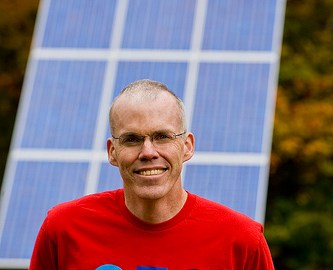Bill McKibben Thinks Echo-boomers Will Solve Climate Change

Last night, among the eerie nighttime mummies and cave-drawings, a who’s who environmental panel convened at the New York’s Metropolitan Museum of Art to discuss how to “move the conversation beyond the ‘is global warming a hoax?’ debate.” That was how mediator Robert Silvers, of the New York Review of Books, put it, before going on to introduce his panelists: Bill McKibben, Andrew Revkin, James Hanson, Cynthia Rosenzweig, Jostein Gaarder, Frederic Hauge, and Bjørn Lomborg.
Over the course of the evening, a lot of interesting and intelligent people said a lot of interesting and intelligent things. Bjorn Lomborg and Frederic Hauge went head to head on the question of whether it’s better to invest in clean tech by funding R & D, or to invest in clean tech by employing the imperfect technologies currently available to us. Hauge said (taking Germany as his example) that the thing to do is to put up as many solar panels today as we can possibly afford to, in as many places as possible, and drive market development that way. Even though those panels still only operate at a fraction of the efficiency with which they probably one day will. Bjorn said dream on, the only place to put our money is into the research that will build tomorrow’s 100% efficient solar panels.
Andrew Revkin, a middle child, turned the heat down on the conversation by pointing out rationally, and with lots of statistics, that indeed, clean tech R&D funding continues to plummet.
It was acknowledged by several panelists that the human species is doomed in several ways, that the damage is done, that we can adapt and mitigate, but that big climate change is coming.
And then, out of left field, Bill McKibben started talking encouragingly about something funny: young people. Most staffers and volunteers on his 350 campaign, he said, are 25 years old or under – and that’s just fine by him. He likes their attitude. Their feeling is, as McKibben put it: “we know that things are already bad… but we’re not going to moan about it, we’re going to do all we can now.”
Partly, he said, that’s because young people know they’re going to have to “live with this for a long, long time.” But McKibben also thinks it’s partly just the can-doism of youth, which makes them “mature in ways that many of us are not mature.” Could climate change be a puzzle only the youngest of the echo-boomers are emotionally equipped to solve?





